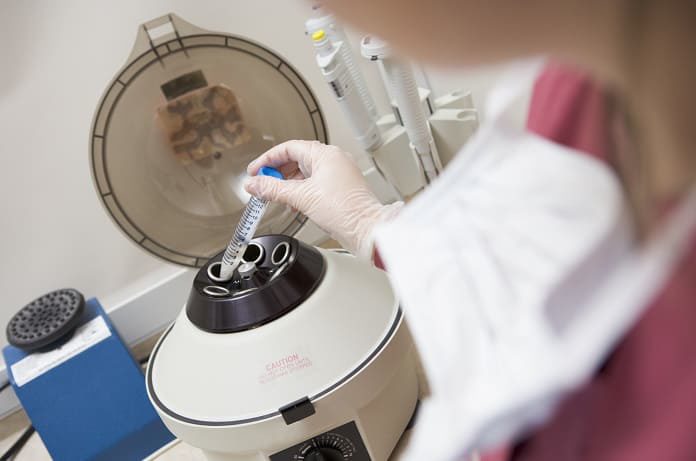Irritable bowel syndrome (IBS), affecting more than 11% of people worldwide, causes abdominal pain, bloating, and irregular bowel movements. A recent clinical trial in Norway investigated whether fecal transplants could restore a healthy gut microbiome and relieve irritable bowel syndrome symptoms.
Irritable bowel syndrome (IBS) causes abdominal pain, bloating, and abnormal frequency and consistency of bowel movements. At least 11.2% of the global population has IBS and their quality of life is perturbed. People with IBS often undertake dietary interventions for symptom relief, but these efforts are restricting and difficult to maintain leading to symptom relapse. Pharmacological treatment is limited. However, researchers are now suggesting that a fecal transplant could be a feasible and effective option to treat patients with IBS.
Deficiency of Healthy Gut Bacteria
Diet, genetics, stress, mental illness, hormonal changes, and antibiotics have all been identified as contributing to IBS symptoms, but the exact cause of IBS is unknown. Recently, dysbiosis, or the imbalance of gut microbiota, has been shown to contribute to many disease states and is believed to have a role in IBS.
The human gut microbiota is comprised of 10-100 trillion microbial cells that have conserved core functions in carbohydrate, protein, and amino acid metabolism essential for human health. Further, certain microbial species have roles in enhancing metabolism, the immune system, cancer resistance, and brain function. People with IBS have a less diverse gut microbiome, and probiotics and antibiotics that target the gut microbiome can relieve some IBS symptoms. Perhaps, by therapeutically targeting the gut microbiome by fecal transplant, patients with IBS will experience symptom relief.
What is a Fecal Transplant?
A fecal microbiota transplant, or fecal transplant, is a clinical procedure in which stool is collected from carefully screened, healthy individuals, prepared with saline and glycerol, and transplanted to a patient via a colonoscopy, enema, or in a sterilized capsule.Stool from a healthy person contains a large number of gut microbes that have the potential to repopulate the dysbiotic gut of a person with IBS with healthy bacteria.
This recent clinical trial published in The Lancet Gastroentology & Hepatology, assessed whether the restoration of dysbiotic microbiota via fecal transplants can induce symptom relief in patients with IBS. Participants with IBS were assigned to an active group that receives a fecal transplant from healthy donors or a control group that receives their own feces as a placebo.Symptom relief was assessed three months post-treatment, then again at 12 months post-treatment.
Fecal Transplants Produced Symptoms Relief
The study found that 43% of the participants who received the fecal transplants from healthy donors experienced significant symptom relief three months post-treatment. This result was, however, no longer significant at 12 months post-treatment. Further, many participants experienced relief within the first few days post-treatment, but it can take more than seven months after fecal transplant for the microbes to colonize within the gut. Disruption of microbe colonization by biological and environmental factors could explain why participants experienced relapse of symptoms between 3-12 months.
This clinical trial determined that fecal transplants can significantly improve symptoms of patients with IBS. This study did not perform gut microbiota analysis of participants before and after fecal transplants, therefore symptom relief cannot be directly attributed to restoration of a healthy gut microbiome. However, this study shows that the gut microbiome is a feasible therapeutic target for people with IBS, and with more research, fecal transplants could prove to be an affordable and effective treatment option.
Written by Mallory Wiggans
References:
(1) Gupta, S., Allen-Vercoe, E. &Petrof, E. (2016). Fecal microbiota transplantation: in perspective. TherapAdvGastroenterol 9, 229-239.
(2) Johnsen, P.H., Hilpush, F., Cavanagh, J.P., Leikanger, I.S.,Kolstad, C., Valle, P.C. &Goll, R. (2018).
(3) Faecal microbiota transplantation versus placebo formoderate-to-severe irritable bowel syndrome:a double-blind, randomised, placebo-controlled,parallel-group, single-centre trial. Lancet GastroenterolHepatol 3, 17-24.



